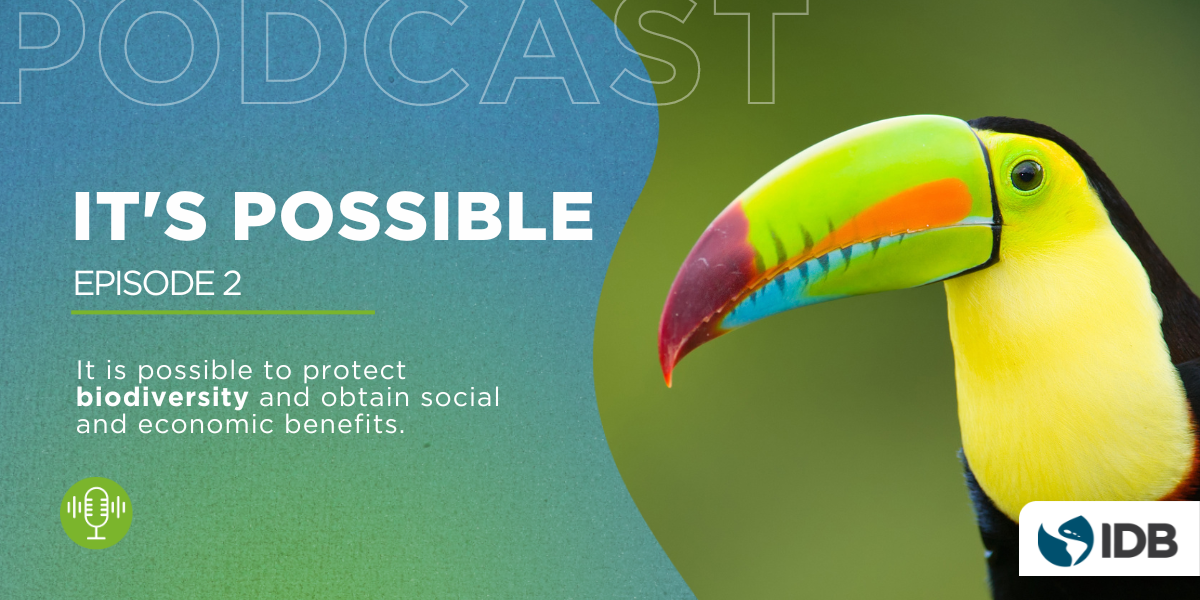In recent years, the world has witnessed a growing interest in the biodiversity and natural capital agenda and how to finance necessary action. Governments, multilateral organizations, donors, civil society, and the private sector are increasingly coming together to accelerate innovations in sustainability, climate action, and biodiversity conservation. This collaborative effort reflects an economic imperative and a moral responsibility to protect the diversity of life on our planet.
Ecosystems are essential for the economic, cultural, and physical health of people. Despite their significance, nature is increasingly threatened, and biodiversity loss is ranked as the third most potentially damaging risk to human survival, underscoring the urgency of addressing this issue.
However, there is hope. Positive mechanisms and actions can help combat climate change and biodiversity loss while fostering economic growth. Investing in nature safeguards our planet’s future and offers economic benefits.
Biodiversity protection must be at the core of development and economic strategies
The Inter-American Development Bank launched the “It’s Possible” podcast series featuring how climate action and biodiversity unlock multiple benefits in Latin America and the Caribbean. We invited high-level speakers for the biodiversity episode and discussed why and how investing in nature pays off. Click here to listen to what Carlos Manuel Rodríguez, CEO of Global the Environment Facility, Laura Ortiz Montemayor, Chief Purpose Officer of SVX, Mexico; Mariana Bellot, Senior Technical Advisor, The Biodiversity Finance Initiative, BIOFIN-UNDP; and Gregory Watson, Principal Sector Specialist, Natural Capital, IDB talked about.
Diving into the Podcast
- Comprehensive strategies are needed to ensure successful transitions to net-zero-carbon and climate-resilient economies. Strong cross-institutional work is needed to ensure policy coherence. While governments are key players, stakeholders from the finance sector, industry, local communities, and indigenous groups must also be actively involved. Biodiversity considerations should be mainstreamed across various sectors, including infrastructure, agriculture, education, and social services.
- Protecting biodiversity is not just an investment in our planet’s future; it’s our ultimate life insurance. The health of ecosystems directly impacts both human survival and corporate profits. Recognizing our interdependence with nature is essential. Climate and biodiversity action must transcend a narrow tech-centric mentality focused solely on capital accumulation. We need to rewire financial systems to embrace a holistic approach that encompasses all sectors in the transition toward a sustainable future.
- Investing in nature is not only an ethical responsibility but also a smart economic decision. The urgency of addressing biodiversity loss and climate change cannot be overstated. There is a moral imperative to how humans should handle the responsibility to guarantee the existence and diversity of life on the planet. As custodians of a significant portion of the world’s biodiversity, Latin America and the Caribbean have a crucial role in this global effort.
By fostering comprehensive strategies, involving diverse stakeholders, and recognizing the true value of biodiversity, we can ensure a sustainable future for ourselves, future generations, and all life on Earth. It’s time to reframe biodiversity action as our only life insurance and commit to a more ecologically responsible financial future. Click here to listen to the podcast on your favorite platforms.
Another episode from the It’s Possible podcast series, Just Transition, is here.


Leave a Reply